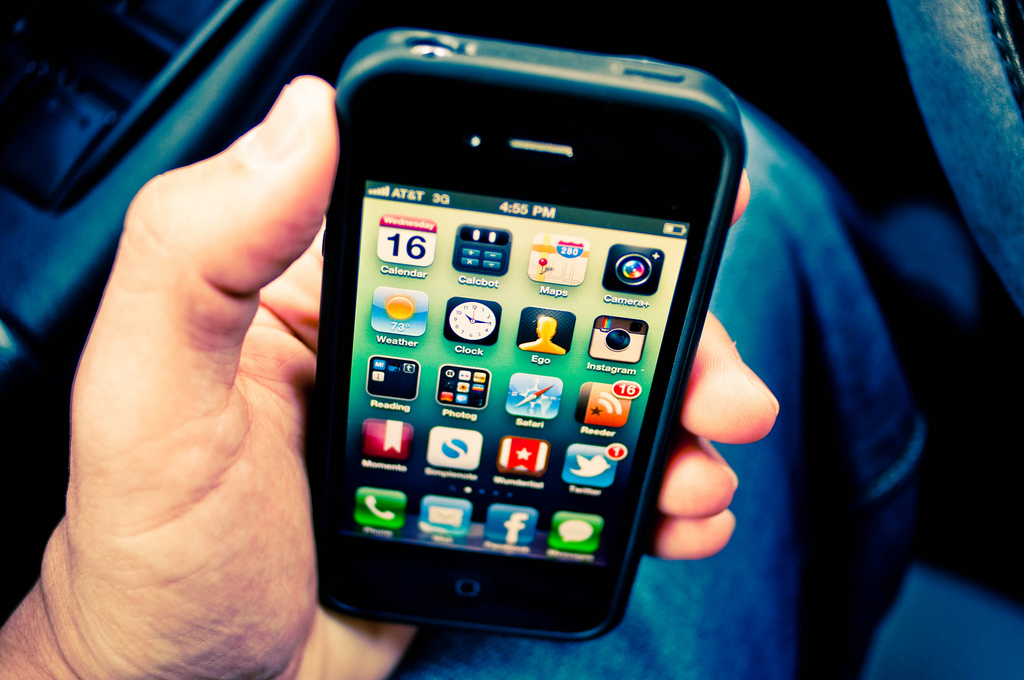By Thomas Nyte (Contributor) – Email
Print Edition: March 19, 2014

A couple weeks ago, I watched a video on my smart phone about how people are too addicted to their smart phones.
Unfortunately, the video oversimplified a huge societal issue and underutilized a big opportunity for thoughtfulness and poignancy. How? It presented a problem without a consequence or a solution.
And that’s what really got me thinking — smart phone usage is crippling younger generations.
A couple days after watching the video, I was sitting in a class along with about 20 other early students, waiting for the professor to arrive. With smart phone saturation weighing heavily on my mind, I decided to leave my iPhone in my pocket, sit back in my chair, and take a look around the room.
Literally every person in the room was on a phone. Every. Single. One.
My disgust quickly outweighed my fascination and I didn’t touch my phone for the rest of the afternoon. When I left to drive home, I put my phone in the trunk to make sure I wouldn’t even glance at it while I was driving.
The issue here is not the fact that many young people are losing their ability to talk to people face to face. Frankly, that just isn’t true. The real issue is that more and more people no longer find it important to talk to each other face to face. Smart phones have provided a convenient alternative to facing potentially awkward social situations.
You see, I along with many of you am a member of Generation Y; the generation that has, in recent years, taken a lot of flak for being too dependent on technology. And there’s absolutely no doubt that we’ve seen significant advances in the popularity of personal technology over the last decade. For example, statistics show on Election Day in 2008, there were a total of 1.8 million tweets in 24 hours worldwide. On Election Day 2012, four years later, Twitter states the same amount of tweets were shared every six seconds.
My Generation Y cohorts and I have been living in a culture that has constantly sought to remove the stigma of abusing personal technology, but the truth is there’s absolutely nothing the culture can do to change it.
So this leaves us to devise our own solution. We as phone users must learn to be smarter than our smart phones. We have to think critically about our phone usage. We need to start spreading the message: constantly being on your phone is not okay.
When we “kill time” on our phones, we are robbing ourselves of real life experience and leaving ourselves at the mercy of apathy. It’s like paying for an invaluable university class and never showing up for it.
We risk missing significant moments with friends, loved ones, and perhaps most importantly, enemies. We risk denying ourselves singular experiences of real happiness, sadness, and anger.
I am just as guilty as you regarding this issue, but for those of you who claim you are unaffected by the inundation of cellular technology, don’t trick yourself. It’s easy to tell yourself that checking your Facebook cannot wait. It’s easy to tell yourself that if you don’t know something, you can just Google it instead of actually remembering it.
I’ve been there — but adopting this attitude robs us of two vital life skills: the ability to be patient, and the ability to be bored.
I encourage everyone to carefully reevaluate your personal definition of “often.” Don’t compare your habits to the habits of others. You and you alone need to decide how often you should be on your phone.


